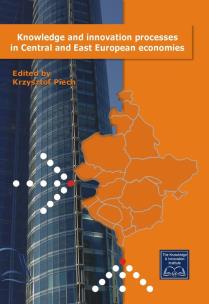- Regulamin
- Koszty dostawy
- Kontakt
- Dziś w ofercie 234 885 produktów
KSIĄŻKI
- Albumy
- Beletrystyka
- Biografie
- Dla dzieci i młodzieży
- Edukacja
- Ekonomia i biznes
- Ezoteryka
- Historia
- Informatyka
- Kalendarze
- Komiksy
- Kryminał i sensacja
- Kultura i sztuka
- Literatura faktu
- Literatura kobieca
- Literatura piękna
- Medycyna
- Nauka języków obcych
- Nauki humanistyczne
- Nauki przyrodnicze
- Nauki ścisłe
- Podręczniki
- Poradniki
- Prawo i administracja
- Przewodniki i podróże
- Psychologia
- Religia
- Sport
- Technika
- Zdrowie i uroda
ZABAWKI
- Artykuły dla niemowląt
- Bączki
- Bujaki i skoczki
- Ciągnij / pchaj
- Dla niemowlaka
- Grzechotki i gryzaki
- Karuzele i pozytywki
- Maty i centra zabaw
- Projektory i lampki
- Sortery i piramidki
- Zabawki
- Edukacyjne i kreatywne
- Figurki
- Klocki
- Lalki
- Pojazdy
- Pluszaki i maskotki
- Sport i rekreacja
- Zabawa w dom
- Zabawki drewniane
- Puzzle
- Do 200 elementów
- 201-500 elementów
- 501-1000 elementów
- Ponad 1000 elementów
- Puzzle 3D
ART. PAP
- Artykuły biurowe
- Artykuły piśmiennicze
- Bloczki i kartki samoprzylepne
- Dziurkacze
- Kalkulatory
- Nożyczki i nożyki
- Skoroszyty
- Teczki
- Wizytowniki
- Zszywacze
- Artykuły szkolne
- Akcesoria szkolne
- Modelowanie
- Notatniki i zeszyty
- Piórniki
- Plecaki i torby
- Pojemniki na śniadanie
- Pomoce naukowe
- Przybory matematyczne
- Przybory rysunkowe
- Upominki i gadżety
- Akcesoria do książek
- Artykuły balowe
- Breloki i zawieszki
- Drobiazgi, różności
- Kubki
- Oferta Świąteczna
- Papeteria, kartki i naklejki
- Skarpetki Many Mornings
- Upominki
GRY
MULTIMEDIA
- Audiobooki
- Beletrystyka
- Biografie i wspomnienia
- Dla dzieci i młodzieży
- Fantastyka
- Filozofia i religia
- Historia
- Literatura faktu i reportaż
- Poradniki
- Sensacja i kryminał
- Filmy DVD/BD
- Animowane
- Biograficzne
- Fantasy
- Horrory
- Komedie
- Romanse
- Science Fiction
- Sensacyjne / kino akcji
- Thrillery
- Muzyka CD
- Alternatywna
- Blues
- Dla dzieci
- Jazz
- Klasyczna
- Piosenka aktorska i poetycka
- Pop
- Rock
- Świąteczna i kolędy
- Akcesoria GSM
- Głośniki
- Kable i adaptery
- Klawiatury
- Myszy
- Słuchawki
PROMOCJE
ZDROWIE
LEGO

Knowledge and innovation processes in Central and East European economies
Wydawca:
Instytut Wiedzy i Innowacji
ISBN:
9788360653036
EAN:
9788360653036
oprawa:
Miękka
język:
angielski
liczba stron:
382
rok wydania:
2007
(0) Sprawdź recenzje
Opis produktu
Zasady bezpieczeństwa
Autorami książki są wybitni specjaliści z zakresu innowacji i gospodarki wiedzy z OECD, Komisji Europejskiej, krajów wyszehradzkich oraz z Wielkiej Brytanii i Holandii.
The aim of the book was to review recent research results in the sphere of knowledge and innovation processes in Central and East European (CEE) economies, especially in Visegrad countries (namely: the Czech Republic, Hungary, Slovakia and Poland).
The volume covers large parts of the issues which are connected with the knowledge economy, as it what was called by OECD and the World Bank, namely with R&D, innovations, innovation policy, education (incl. human capital), foresight, e-business etc.
The key questions of the book were as follows:
do knowledge and innovation contribute to the development of CEE countries?
is the distance between (esp.) the V-4 countries and the EU growing or decreasing?
are knowledge and innovation priorities included in policy agenda in CEE as factors of further economic growth?
do industries and companies appreciate benefits from knowledge and innovation activities and draw more attention to them?
MAJOR FINDINGS of the book:
- Not only companies but also geography, institutions and policies determine growth and competitiveness. The new EU member states should develop and coordinate policies related to the knowledge economy.
- EU should play larger role in the coordination process, including also influence on regional policies, because the policy-makers in CEE countries often concentrate on short-, instead of long-term, problems.
- Knowledge and innovation priorities become more frequently included in policy agendas, also on a regional level; nevertheless, in a number of cases they are limited to slogans and the interests of sectoral or local lobbies often prevail.
- Policy-makers of CEE countries should concentrate more on creation of pro-innovative working environment and cluster-oriented culture, based on trust and exchange of knowledge and innovation, rather than on an increase of R&D expenditures only.
- There still lack sufficient measures of, e.g. knowledge economy or research policy improvement. Therefore, the studies on research systems (and foresight processes) should be intensified and the results included in development policies.
CENA:
19,66
zł
Cena detaliczna:
29,00 zł
32%
rabatu
Najniższa cena z ostatnich 30 dni: 19,72 zł
Produkt niedostępny
Uwaga!!!
Ten produkt jest zapowiedzią. Realizacja Twojego zamówienia ulegnie przez to wydłużeniu do czasu premiery tej pozycji. Czy chcesz dodać ten produkt do koszyka?


Wybierz wariant produktu
